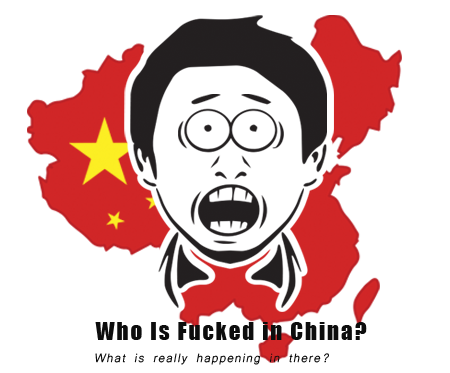A Long Way to Protect Consumer Rights in China
March 15th is the World Consumer Rights Day. On 15 March 1962, former United States President John F. Kennedy said, “Consumers by definition include us all. They are the largest economic group, affecting and affected by almost every public and private economic decision. Yet they are the only important group whose views are often not heard.” Well, 56 years elapsed, how are the Consumer Rights in China today?
First two chapters of Access to Knowledge for Consumers, a book from the Access to Knowledge campaign of Consumers International
Consumer rights activist Anwar Fazal working for Consumers International at the time later proposed the observance of a ‘World Consumer Rights Day’ marking that date, and on 15 March 1983 consumer organizations started observing that date as an occasion to promote basic rights of consumers.
Liuliu was a well-known scriptwriter in China. She wrote a few popular TV dramas in the past a few years. Recently, she once again came back under the spotlight because of an article she reported, which straightforward blamed the poor customer service of Jingdong. (JD.com)
Jingdong was one of the two largest B2C online retailers in China. Jingdong is the world’s leading company in high tech and AI delivery. It has recently started testing robotic delivery services and building drone delivery airports, as well as operating driverless delivery by unveiling its first autonomous truck.
Apparently, Liuliu wasn’t impressed by those technologies developed by Jingdong. “Jingdong still looks like traditional industry compared to Taobao.” The reason for it, “Taobao has tried very hard to crush the counterfeit products on its platform. On the contrary, Jingdong was trying very hard to be a market for counterfeit products.”

Jingdong was revealed counterfeit scandal
Liuliu posted a complaint letter from Cheng Mo, who was her college alumni, on her Wechat official account. In the letter, Cheng Mo told the story about how she tried to make complain to Jingdong according to related laws and policies. But Jingdong can’t give her a satisfied response or solution.
“I ordered a Comfort U pillow from Jingdong Quanqiugou (global buy). It was sold for 109.95 dollars on its United States official website. Jingdong sold it for 1498 Yuan (about 236 US Dollars). However, the seller sent me a pillow labeled Contour U, which was sold for 33.6 dollars on its United States official website. Jingdong seller used a pillow which costs about 212 Yuan to replace a 700 Yuan pillow. Then they sold it to the buyers for 1489 Yuan.” said Cheng Mo.
Cheng Mo realized that she might get a counterfeit product. She immediately took a few pictures of the pillow she received and contacted the seller. But the seller refused to admit that he sent the incorrect products.
“The seller tried to explain to me that the pillow they sent to me was the right one. They told me no matter the outlook, brand or weight, the pillow they sold all matched with the one sold in the United States. Even after I told them that the real Comfort U pillow weights 9.7 pounds. But the pillow I received only weighed 7.4 pounds. They told me the 9.4 pounds included the weight of the package box.
Their explanation was beyond ridiculous. But they insisted that they sent me the Comfort U pillow as they listed. They can’t accept the return or replace request. They even sent me a sale record of this pillow to prove that they have been selling it on Jingdong. It means that they have been selling counterfeit products all along!”
Cheng Mo snipped the product pages of Comfort U pillow and Contour U pillow on their United States official websites. She sent those screenshots to the seller. In front of the hard evidence, the seller finally admitted that they sold Cheng Mo the counterfeit product and accepted the requests for return and refund.
Cheng Mo didn’t stop fighting. “It was easy for them to refund one pillow. But the fraud online store like it must be stopped. They can’t continue selling counterfeits to other customers.”
“Jingdong Quanqiugou (global buy) was ‘genuine articles guaranteed’, ‘decuple penalty for fake’. When I told the seller that they would face a penalty of decuple the labeled price, they told me ‘we just sent you the wrong product accidentally.’”
Not getting a satisfied result from the third party seller, Cheng Mo decided to contact the customer service of Jingdong.
“Little did I know Jingdong was one behind all these!” said Cheng Mo in the article.
Cheng Mo started to contact the customer service of Jingdong. After she submitted all the proofs of the counterfeit product she received from the seller, Cheng Mo was told that “the seller shipped out the wrong item”. She was told to contact the seller and get a replacement or refund.
Cheng Mo was very upset about this response. She planned to file complaints with the customer service representative. However, the representative told her that “I will still be the one who deals with your complaint.” When Cheng Mo asked her “what’s Jingdong going to do with the sellers who sell counterfeit products?” The representative told her, “I don’t know.”
“It seems like Jingdong decided to cover up the fraud sellers. The only way left for me was bringing it up to the government,” said Cheng Mo.
She dialed the hotline 12315 of Chinese customer association. But the representative told her that since online purchase can’t provide invoices, they can’t take her case. They suggested her to talk to the branch where Jingdong registered the company. Cheng Mo followed the direction. But once again she was told that only the headquarters of Chinese Customer Association in Beijing would take her case.
The Beijing Office took her case. When Cheng Mo thought finally it was going to have a result, the Beijing office called her back and told her that Jingdong Quanqiugou (Global Buy) wasn’t the same company as Jingdong! And Jingdong Quanqiugou was registered in Hong Kong, she needed to go to the Hong Kong Court and sue the company.
After all these hassles, Jingdong still told Cheng Mo that the only thing they could do was requesting a refund from the seller. They even took off the related commercials and the conversations between me and the seller.
At the end of the article, Cheng Mo wrote ironically, “Jingdong has been working so hard to make sure that the sellers can’t sell counterfeit products riskless.” And she also appealed, “I can’t do anything to Jingdong. But at least I can tell everyone about their poor customer service and the sellers who sell counterfeits. As long as we could aware that we shall protect our rights as customers, things will eventually get better in the future.”
Cheng Mo wasn’t the only one. When searched “Jingdong counterfeits” on the internet, lots of people shared their experiences about receiving fake goods from sellers on Jingdong.
Zhaiyun is a freelancer in China. During Double 11 sale, he purchased a Tissot watch with 2,588 Yuan from Jingdong Quanqiugou (global buy). A few days later, he received a watch with broken box and package. Doubting about the quality of the watch, Zhaiyun took it to a local Tissot store. The staff working there told him that the watch was counterfeit. However, they can’t provide a written proof.
“Since I bought the watch as a gift, I had to buy another one from the store. It gave me the opportunity to compare the two watches,” said Zhaiyun.
The complaint didn’t go well with Jingdong. Zhaiyun took pictures of both watches and marked the differences between them. However, the seller asked him to provide proof that the counterfeit was the one he received from Jingdong. The seller even threatened Zhaiyun on the phone to make him withdraw the case.
Zhaiyun decided to make a complaint to the Jingdong official customer service. “Jingdong didn’t admit that they sold counterfeit even the third party seller already admitted,” said Zhaiyun.
“The Jingdong customer service representatives were rude, arrogant and inconsiderable. It is really tough for the customers in China to defend their rights.” Summarized Zhaiyun at the end of his article.
If some counterfeit products only made people losing money, some low-quality goods may take away someone’s home.
March 10th, the Weibo celebrity Wang Zhong Zuo You (Chinese characters: 王中左右) posted about an incident happened in his apartment. A month ago, Wang purchased an electric bike from a branded store of a well-known bike manufacturer. The battery exploded into flames during regular charging. The fire burnt down his apartment.

Defective battery burnt down wangzuozhongyou’s house
In his narrative of the incident, Wang tried to contact the customer service manager of the manufacturer branch in Shanghai. The manager didn’t an apology. But he tried every way to pass the buck. Even after Wang provided the invoice of purchase and the manufacturer certificate of the battery, the manager questioned Wang: “how could I know if you made up the story or not?”, “How could I know if you faked the manufacturer certificate or not?”
The post soon started to trend on Weibo. It has been liked, commented and reposted more than 10,000 times. Weibo users had different opinions on the incident. Some of them believed that the explosion could be caused by the charger, not the battery. Some of them thought this post told how hard it could be for customers to protect their rights: “Wang is a Weibo celebrity and people will pay attention to his story, how if some ordinary people tried to defend their rights?” Some users appealed people to be rational of the incident: “So far we only heard from Wang’s side. We had to at least listen to the voices from both sides.”
One day after Wang posted about his unpleasant experience, the battery manufacturer responded on Weibo regarding Wang’s complaining. “We are deeply sorry for the unfortunate incident happened to Wang and his family. And we also apologize for the unsatisfied customer service. We will work with our customers and the investigators of the incident. We will take responsibility for anything caused by our products.”
The market economy has been developing at an incredibly high speed in China in the past 30 years. Manufacturers produced rich kinds of products at a low price for the Chinese market. But the customer services haven’t progressed as fast as the economy. Many international companies tried to enter the Chinese market. But their customer services were always the first one got localized.
Many people still remembered the battery explosion of Samsung Note 7. One victim named Laohui started his path of defending his right as customer against Samsung China. Laohui has “become a legend, a hero” among Chinese netizens.
Two years ago, the brand new Samsung Note 7 Laohui purchased in China exploded during charging. It burnt Laohui’s hand and after he dropped the phone on his laptop, it kept burning and ruined his laptop too. Laohui became the fourth victim of Samsung Note 7 explosion.
Unlike other victims, Laohui didn’t accept the free new device Samsung China provided. Instead, he stepped on the long and tough road of defending his right as a customer. Thepaper.cn called Laohui “a non-typical Chinese customer”. Different from the mild “typical Chinese costumer”, Laohui wanted to be treated equally and he didn’t want to accept unfair conditions.
“Samsung recalled the Note 7 sold in every country but mainland China. It was an insult to Chinese customers,” said Laohui in an interview.
Laohui never tried to give up on defending his right. He kept collecting proofs. One year after the explosion, Laohui finally brought Samsung China to the court. The sale number of Samsung smartphones dropped dramatically in China.
The big cooperation needed to know that good customer service was one of the core competitiveness in the global market. A company who didn’t respect customers would eventually lose its customers.
Laohui said he hoped there would be more “non-typical Chinese customers”. The rights won’t stay in the safe. People must fight to keep them.




Leave a Reply
Want to join the discussion?Feel free to contribute!